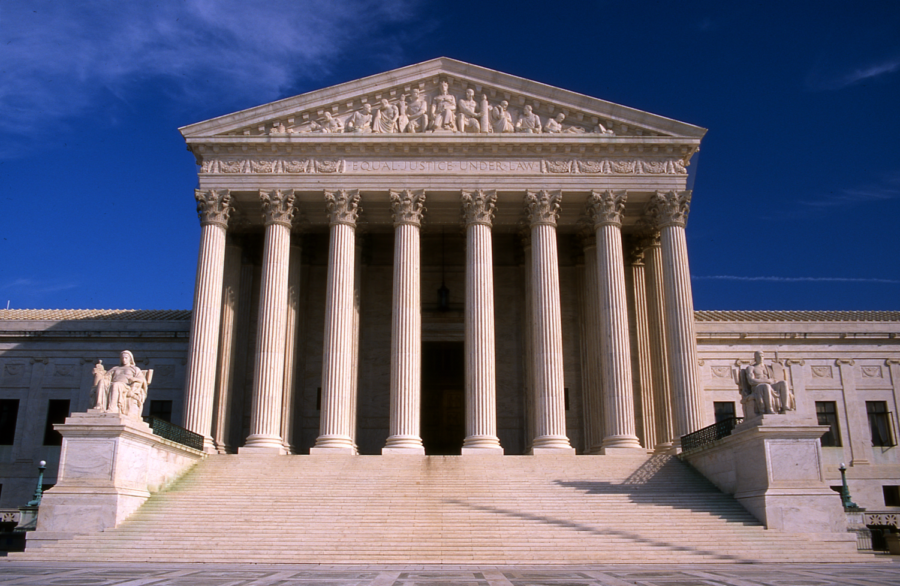Snyder: Order in the court
February 1, 2016
The 2016 presidential election has the potential to shape the immediate future in countless ways, but the most important (and perhaps most long-lasting) effect may have slipped your mind. That change of utterly important consequence in the upcoming election is the potential replacement of up to four Supreme Court justices.
The current Supreme Court bench seats four members who will be over the age of 80 during the next president of the United States’ first term. The average retirement age for Supreme Court justices is 78, so if we’re playing the numbers, they’re already pushing it. Given that two of the potential retirees are listed and seen in their findings as left-leaning Democrats, some pundits are surprised that they are not stepping down earlier in order to allow President Obama to replace them with two younger justices of the same political ideology. Such a move would allow the Supreme Court to maintain the relative balance of four Democrats against five Republicans, but the move now seems unlikely given how late we are into Obama’s tenure.
These coming retirements will put the balance of judicial power for decades to come in the hands of the next commander in chief, as they will have the ability to replace more justices during one term than any president since Richard Nixon. Thankfully, the political ideologies of those who are likely on their way out is balanced between conservative — Antonin Scalia, Anthony Kennedy — and liberal — Stephen Breyer, Ruth Bader Ginsburg — thinkers, so those five who remain will uphold a bipartisan balance, but the threat comes not from those who remain, but from the new justices who will be assigned in the wake of those four retirements.
Thanks to elementary school lessons on checks and balances on our three-pronged federal government, we know that the federal judges of the judicial branch, headed by the Supreme Court, are nominated by the president and appointed or accepted by a senatorial vote. This system is of course meant to maintain the balance of power between the three branches, ensuring that each has a say in the workings of the others. What this system does not prevent, however, is unbalanced partisanship in those branches.
To be clear, I have no qualms with a Republican majority in Congress, nor would I have an issue with a Republican president. I would have, and do have, distinct political and ideological differences, but I believe in the righteousness of democratic elections and will always reconcile myself with the results.
However, there is no choice given to the American people on the appointment of Supreme Court justices. Ideally, this would not matter. A justice would have no political affiliation and therefore no bias, instead they would only work toward the most justified findings as established by the Constitution. Unfortunately, such balanced minds no longer exist. So what I do have a problem with is a Supreme Court that is too heavily weighted on either side of the political spectrum.
No justice on the Supreme Court bench makes a decision simply because it is a conservative idea or simply because it is a liberal idea, but they find on either side because they believe it is the correct finding as opposed to the Republican or Democratic finding. However, we cannot deny that the political leanings of the Supreme Court inevitably play out in ways that massively influence our society. For this reason, it is vital to our judicial integrity that the bench remains as balanced as possible.
At a time when candidates suggest appointing justices who would overrule recent landmark equality cases, at a time when these Planned Parenthood debates rage on, at a time where our social liberties are more at stake than they perhaps have ever been; a significant swing in either direction, granting inordinate amounts of power to either side, does not best serve the whole of the American populous.
If a Democrat is elected this cycle, we could potentially have a six-to-three swing in favor of liberals on the bench. If a Republican is elected, we could have a seven-to-two swing in the opposite direction. Neither of these outcomes favors the judicial process in our highest court, and it should be the responsibility of whoever is elected to maintain some balance in our most delicate branch of government. If you, as an American citizen with a full voice in how you are governed, care to influence the shape of the law in the next 20 years then there is one thing, and only one thing, you can do — Vote.
















